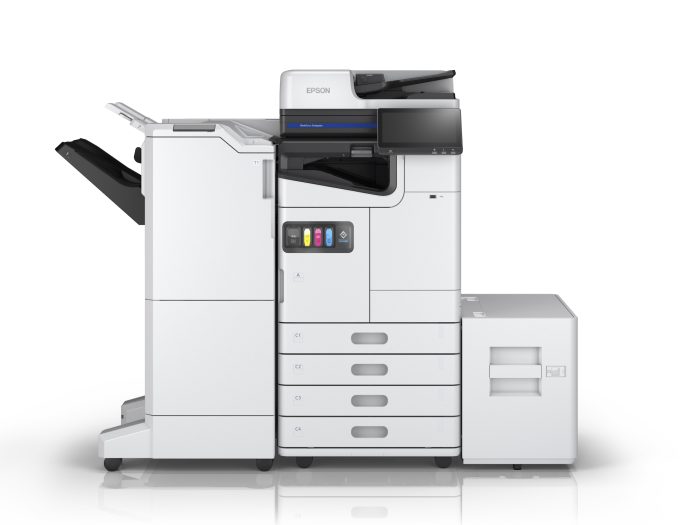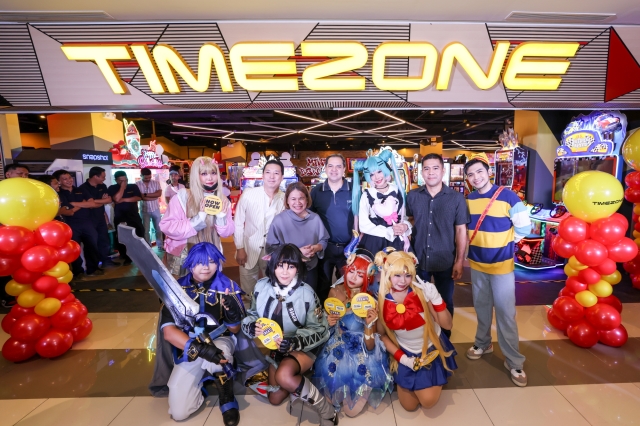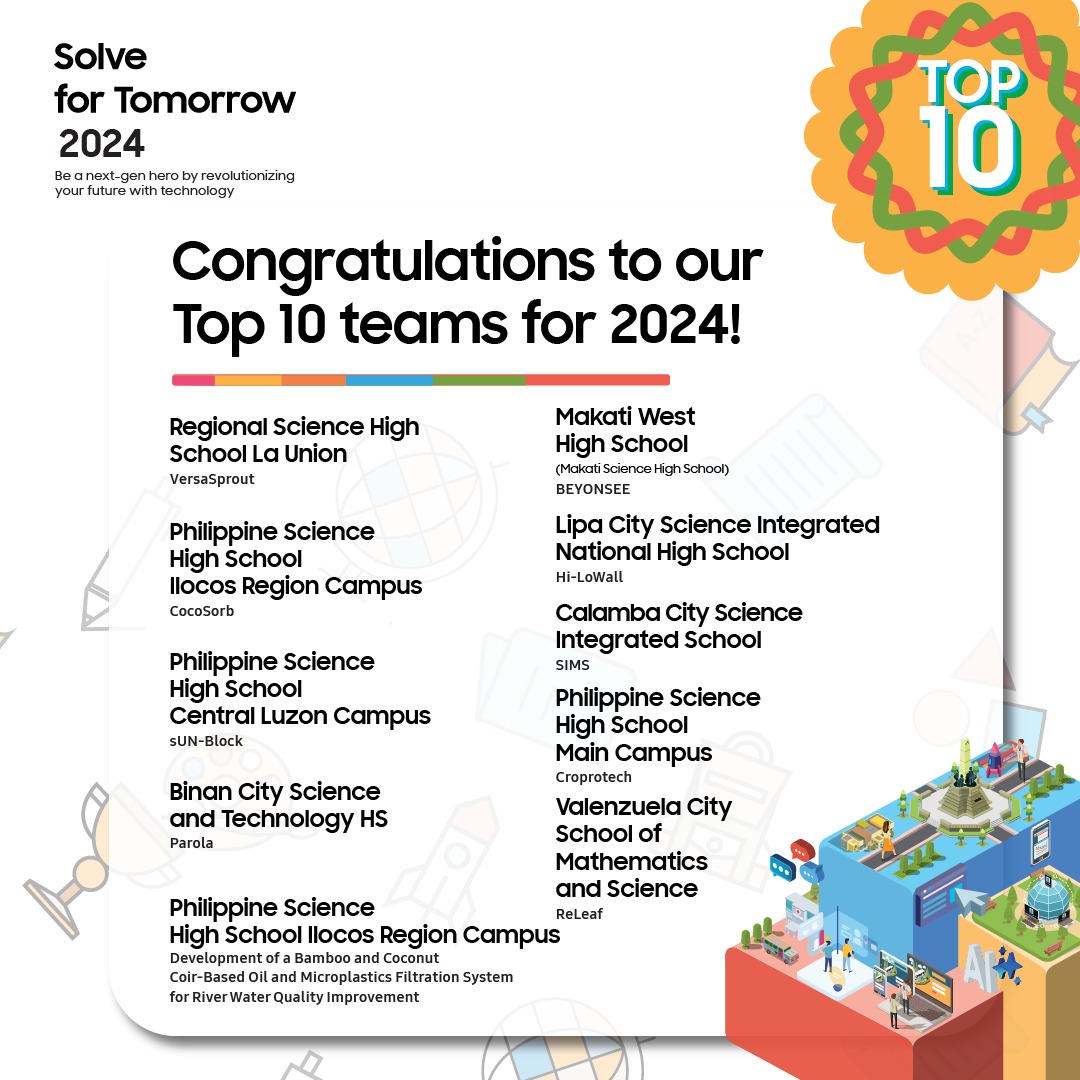TOSHIBA: Enabling Data-Driven Economies from the Philippines
- Data growth is increasing in an exponential rate with the emergence of new technologies
- Toshiba Information Equipment (Philippines), Inc. is a key manufacturing site for nearline Hard Disk Drives (HDDs) primarily used in data centers
- Toshiba’s engineers are behind the success of harnessing benefits of today’s technology to deliver quality data storage solutions globally

Data is created, copied, stored and consumed at an ever-increasing rate, prompting an explosion in data growth globally. According to a recent IDC Global DataSphere report, the amount of data created and replicated is expected to reach around 180ZB by 2025*1. A super-information society is birthed from the convergence of physical space and internet driving interconnectivity of all web-enabled things, on-demand availability of computer system resources and the emergence of artificial intelligence to enable machines to learn and carry out tasks by replicating human intelligence.
*1 IDC, Worldwide Global DataSphere Forecast, 2021–2025: The World Keeps Creating More Data — Now, What Do We Do with It All?, Doc # US46410421, March 2021
One of core digital infrastructures are data centers which are scattered throughout the world. These trends have fuelled to a higher demand for data management and storage utilization solutions to be reliable, secure, power-efficient and at the same time provide high-density storage capacities in an increasingly distributed workload environment.
At the core of these data centers are nearline Hard Disk Drives (HDD), which are the most cost-effective performance storage medium available in the market. Data storage comes in primarily three broad categories: offline, nearline and online. While nearline storage is not immediately available, it can easily be made online quickly without human intervention.

One of leading global technology companies in the storage industry is Toshiba. The company offers a comprehensive portfolio of HDD products that addresses the storage needs of enterprise, data center, surveillance, and client markets. Toshiba enterprise HDDs are categorised in three main areas: “Enterprise Performance HDDs” for traditional mission critical servers and storage systems, “Enterprise Capacity HDDs” for entry servers and storage system for business critical workload, and “Cloud-Scale Capacity HDDs” for hyperscale data centers. In 1CQ21, Toshiba shipped at that time a new nearline HDD and exabyte record of 2.11 million units and 25.6 exabytes, respectively, delivering an average capacity of 12.1TB per unit, which outpaced the industry average*2.
*2 IDC, Worldwide 1Q21 HDD Shipment Results and Four-Quarter Forecast Update, Doc # US47667520, May 2021
Toshiba’s Strategic Data Storage Manufacturing Facility in the Philippines

The company’s key manufacturing facility is based in the Philippines. Toshiba Information Equipment (Philippines), Inc. (TIP) began operations in 1996 and with about 12,000 employees, the company has been instrumental in providing data storage solutions for over 20 years.
A hard disk drive is produced under high precision manufacturing and ultra-clean environments. Since the hard disk demands high speeds of rotation and the head is in close proximity to its platter, nearline HDDs go through an extensive manufacturing process. One of key parts of a hard disk drive is the recording media. With multiple recording media stacked with precision to allow efficient reading and writing of data, a nearline hard disk drive including recording head, media, electronics and firmware is carefully assembled and tested rigorously under extreme environments such as pressure and temperature in test chambers to ensure quality in the final delivery.
With the increasing demand for nearline HDDs, the company has invested to support large-scale production, ramping up output to meet the industry needs. This is with the consideration to minimize wastage of raw materials and maximize technological resources to bring about total cost efficiency and sustainable manufacturing.
What sets Toshiba Apart
Toshiba’s engineers are vital to keep the manufacturing facility going and ensuring business continuity as far as possible.
John Mark Guilaran, Engineer, TIP’s Enterprise Production Engineering division shares, “To meet the increasing Nearline HDD demand, TIP expanded its production capacity by setting up multiple automated lines, while improving the productivity and efficiency of existing lines. We are constantly building a skilled labor force through knowledge transfer, trainings, resource sharing and close collaboration, especially with our Storage Products Division counterparts in Yokohama, Japan. Two automated lines capable of producing 200,000 units of Nearline HDDs per month were set up with minimal supervisory support from Japan. Having a strong desire to learn and ‘never give up’ attitude are our key strengths. We see every challenge as an opportunity to create, innovate, learn and grow.”

Gerald Balingasa, Engineer, HDD Design Support Center adds, “TIP, like any other company, is affected by the COVID 19 pandemic. Prioritization and resourcefulness are important to address the limited access to transportation and rollout of new model evaluation activities. We once again proved to be very resilient despite the challenges. We prioritize the health of our employees, customers and community around us and mandated health protocols are quickly adopted and new regulations are put in place. Our determination to achieve our targets while ensuring everyone’s safety has given us continued success amid the pandemic. The pandemic has taught me to never underestimate the value of camaraderie, understanding life’s unforeseeable moments and making the most out of the situation. Staying true to TIP’s policy of ‘Simple, Speed and Flexibility’.”
Next-generation Data Storage Technology

The most recent development is Toshiba’s first HDD models with energy-assisted magnetic recording. The MG09 Series features Toshiba’s third-generation, 9-disk Helium-sealed design and Toshiba’s innovative Flux Control – Microwave Assisted Magnetic Recording (FC-MAMR) technology, to advance Conventional Magnetic Recording (CMR) density to 2TB per disk, achieving a total capacity of 18TB.
TIP’s HDD Design Support Center collaborated with Toshiba Electronic Devices & Storage Corporation’s Storage Products Division, to carry out the evaluation process and data analysis, making it ready for mass production.
Hiroshi Okamura, President of TIP*3 remarks, “Philippines is a strategic manufacturing location for Toshiba to deliver our data storage solutions to the global market that demands large capacity storage in high speeds. We offer an extensive range of products -from mobile HDDs in notebooks, car navigation and game consoles, high capacity storage solutions for servers systems to nearline series in data centers to support mission critical applications. Toshiba Information Equipment (Philippines), Inc. is leveraging our extensive capabilities as a digital storage provider and well-supported by a highly capable talent pool to deliver customer-focused solutions and innovation to our customers globally.”


















